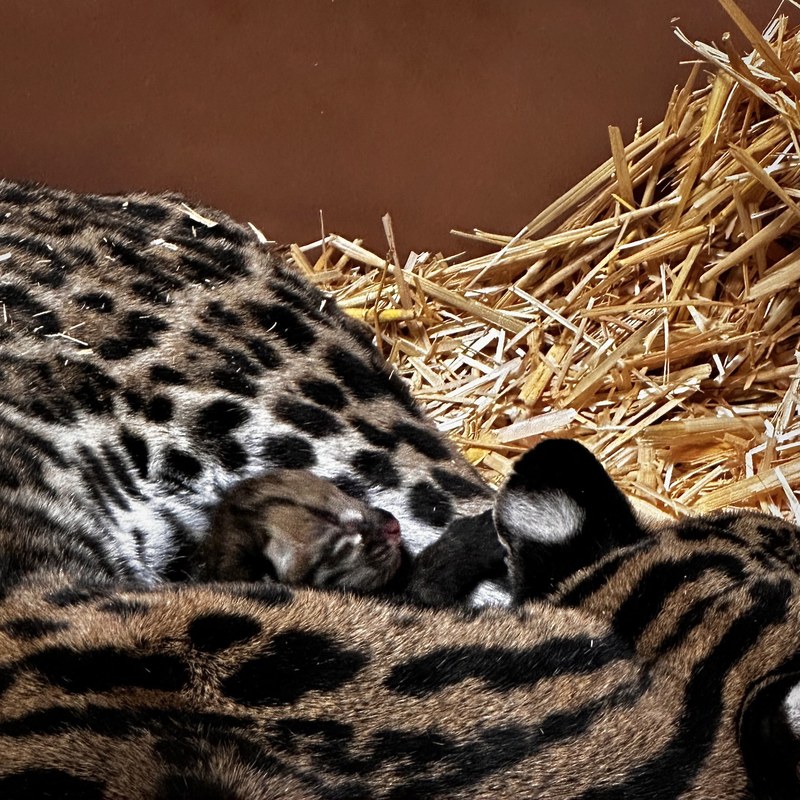
A Spot of Hope: ABQ BioPark Welcomes Ocelot Kitten
Birth brings welcome news for safeguarding the endangered species
ABQ BioPark is excited to announce the birth of a critically endangered ocelot kitten on July 8.
The newest addition to the BioPark family was born to nine-year-old Lucy. Ocelots typically have one or two kittens, with the mother solely responsible for their care for at least one year. Currently, Lucy and her new kitten are being monitored from a distance to allow them to bond naturally. The kitten is thriving and will have its first veterinary check-up at around six weeks old. We expect that Lucy will choose to keep her kitten indoors for the time being.
This is the second birth for Lucy, who had two female kittens, Milla and Leeloo, in 2019. The twins were moved to Texas facilities under the Association of Zoos and Aquariums’ (AZA) Species Survival Plan for ocelots.
In March 2024, Lucy was introduced to the late Frisco on an AZA breeding recommendation. They spent much of the last few months together in the hopes of a successful pregnancy. This kitten is Frisco’s only offspring and a cause for huge celebration both as a win for all ocelots and for his care team.
“We are overjoyed to welcome this new ocelot kitten to our BioPark family," said Casey Taylor, BioPark Assistant Curator. "Every birth of an endangered species like the ocelot is a step forward in our conservation efforts. We are also deeply grateful that Frisco was able to contribute to the preservation of his species, and his legacy will live on through this kitten."
Ocelots have been listed as endangered by the U.S. Fish & Wildlife Service since 1982. They once ranged throughout the Southwest, but today South Texas is believed to be the only remaining native range of ocelots in the United States, with estimates of fewer than 100 left in the wild. Conservation efforts focus on the goal of increasing the wild population and providing protected land in their native range.
